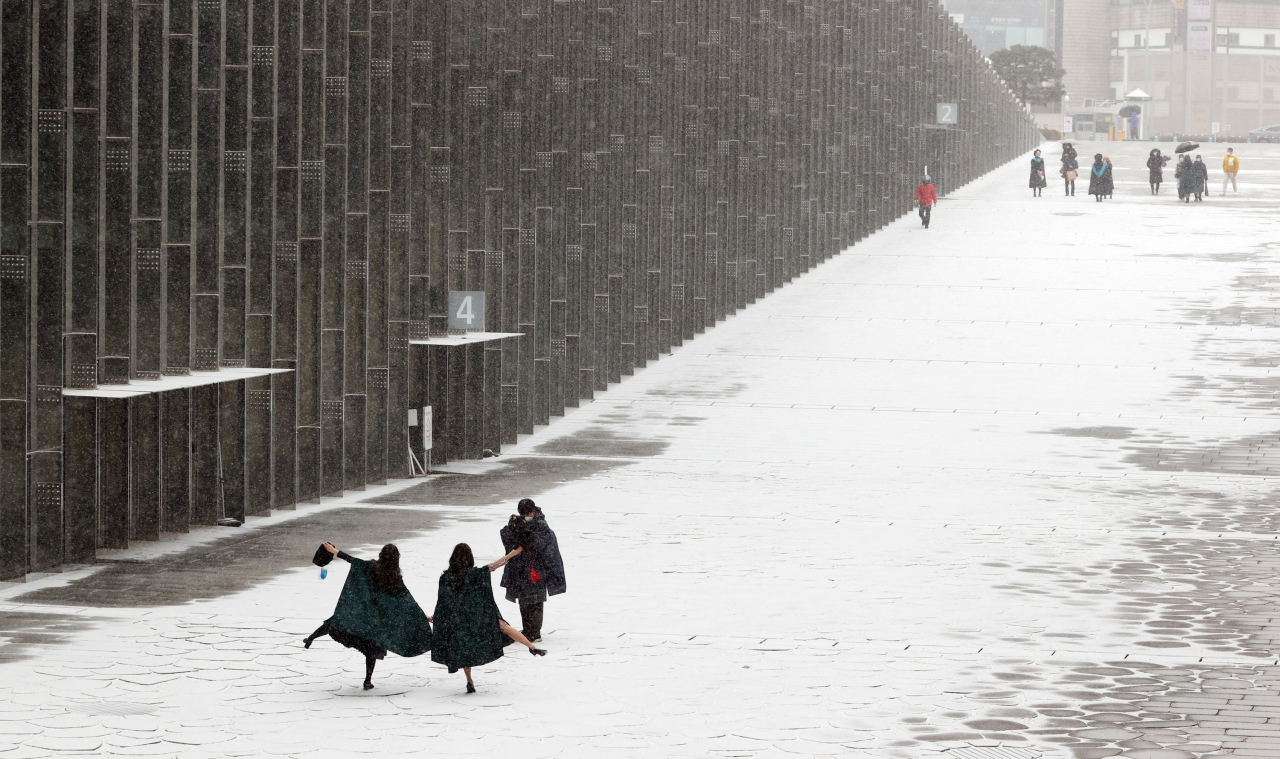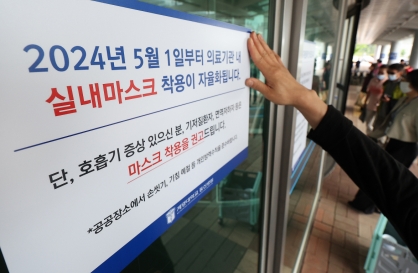Will ‘social bubble’ strategy work for Korea?
Government mulls revising social distancing rules to restrict people’s behavior, rather than businesses
By Kim ArinPublished : Feb. 21, 2021 - 18:27

South Korean health authorities are expected to announce a revised roadmap for social distancing that will give more freedom to businesses, while restricting people’s behaviors more strictly, to combat COVID-19.
“So far Korea has restricted opening of businesses and public places without necessarily limiting movement of people or other individual behaviors,” said Health Ministry spokesperson Son Youg-rae during a news briefing last week.
“From now on, closures and other curbs on businesses will be minimized, and instead activities such as travel, gatherings and outings will be subject to tougher controls.”
According to the ministry, recent infection cases have largely been driven by in-person interactions among friends or family. About 36 percent of all recently confirmed patients caught COVID-19 from someone they know, while as many as 23 percent could not be contact-traced -- meaning that they weren’t connected to known outbreaks.
Son said the latest trend indicates that the virus is spreading mainly through person-to-person events, which is why the ban on private gatherings of five people or more has proved particularly effective in beating back the December surge in infections.
Son hinted that the government plans to introduce a more tightened gatherings ban mimicking New Zealand’s model of “social bubbles,” under which only an exclusive group of up to 10 people are allowed to meet each other.
The social bubble approach has been credited with helping New Zealand successfully control the spread of infections, with still only 26 deaths as of Sunday.
“Each person’s realm of social interactions would be limited to people whom they live with or must maintain regular contact with,” Son said. “If you can’ telecommute, your bubble would include your co-workers, for instance.”
He said the bubbles would be used under stricter tiers of social distancing. “You not have to socially distance from people included in the bubble, but should avoid mingling with anyone outside the bubble.”
The imminent update is intended to reduce damage to the economy from the pandemic measures. “Social distancing burden has to be shared by the whole of society rather than certain sectors,” he said. He recognized that the way social distancing has worked in Korea over the last year has caused small businesses to suffer without fair compensation.
Although there will be more pressure on people to refrain from socializing, how much of the rules will be mandatory remains to be decided.
“The first draft of the social distancing scheme is expected to be finalized sometime next week. As the case rates are once again on the rise, its introduction could be postponed,” he said.
Son added that Korea had room to sustain a greater number of patients at a time than is dictated by the present system. Currently, the strictest tier of social distancing is implemented when there are 800 to 1,000 cases a day.
“Our health care system capacity has been expanded to be able to stand about 1,000 patients being diagnosed per day for about three weeks,” he said.
“In light of our improved response, social distancing rules can be applied more sparingly for the remainder of the pandemic. As vaccinations will soon begin, I think we can expect to ease off on social distancing even further in May or June.”
By Kim Arin (arin@heraldcorp.com)




![[Music in drama] Rekindle a love that slipped through your fingers](http://res.heraldm.com/phpwas/restmb_idxmake.php?idx=644&simg=/content/image/2024/05/01/20240501050484_0.jpg&u=20240501151646)

![[New faces of Assembly] Architect behind ‘audacious initiative’ believes in denuclearized North Korea](http://res.heraldm.com/phpwas/restmb_idxmake.php?idx=644&simg=/content/image/2024/05/01/20240501050627_0.jpg&u=20240502093000)



![[KH Explains] Will alternative trading platform shake up Korean stock market?](http://res.heraldm.com/phpwas/restmb_idxmake.php?idx=644&simg=/content/image/2024/05/01/20240501050557_0.jpg&u=20240501161906)








![[Today’s K-pop] Stray Kids go gold in US with ‘Maniac’](http://res.heraldm.com/phpwas/restmb_idxmake.php?idx=642&simg=/content/image/2024/05/02/20240502050771_0.jpg&u=)